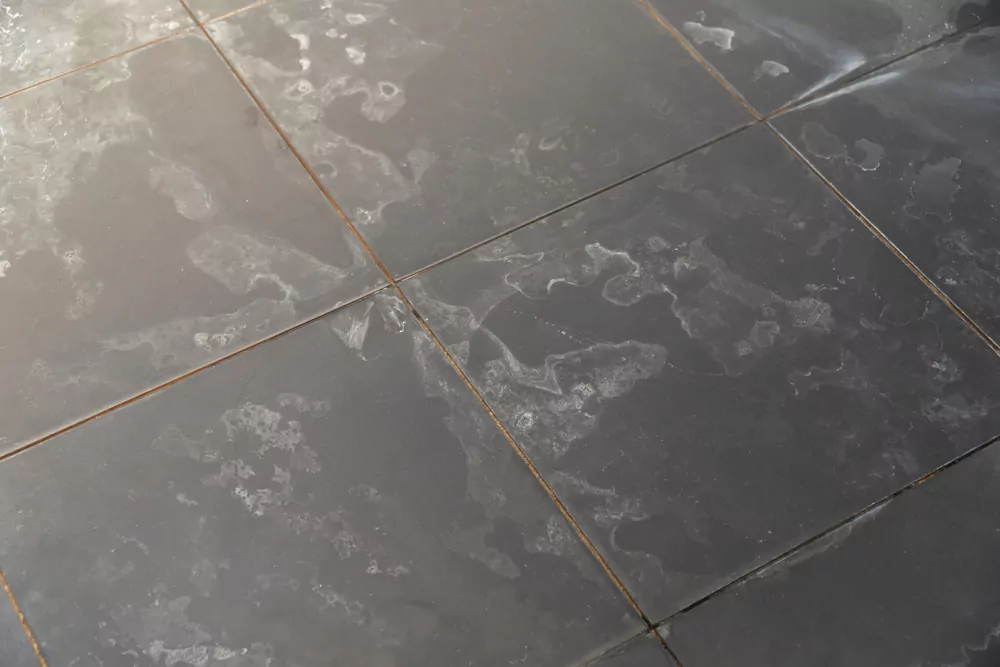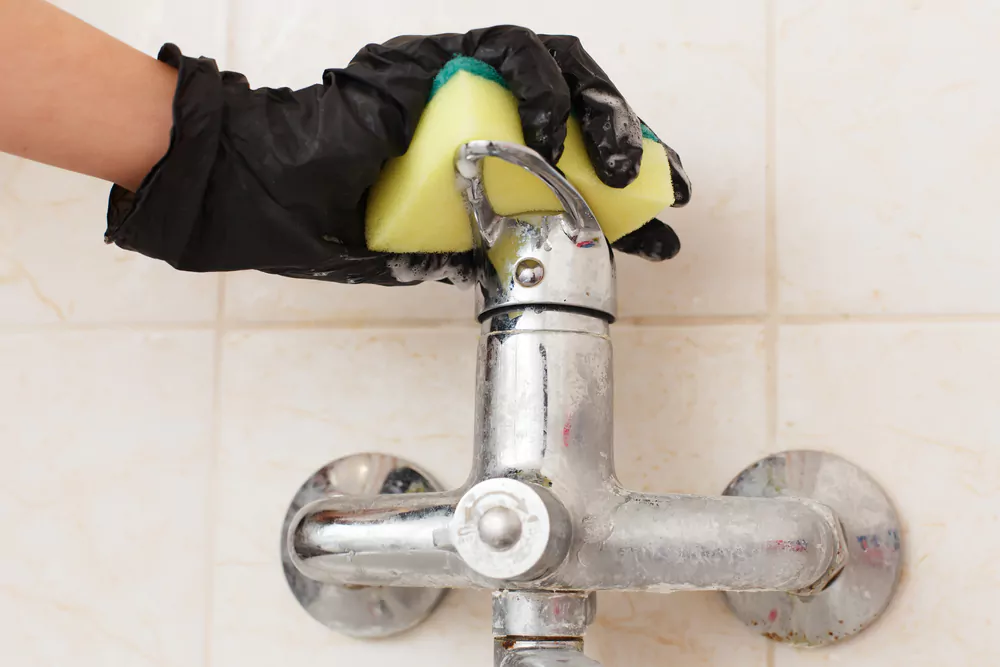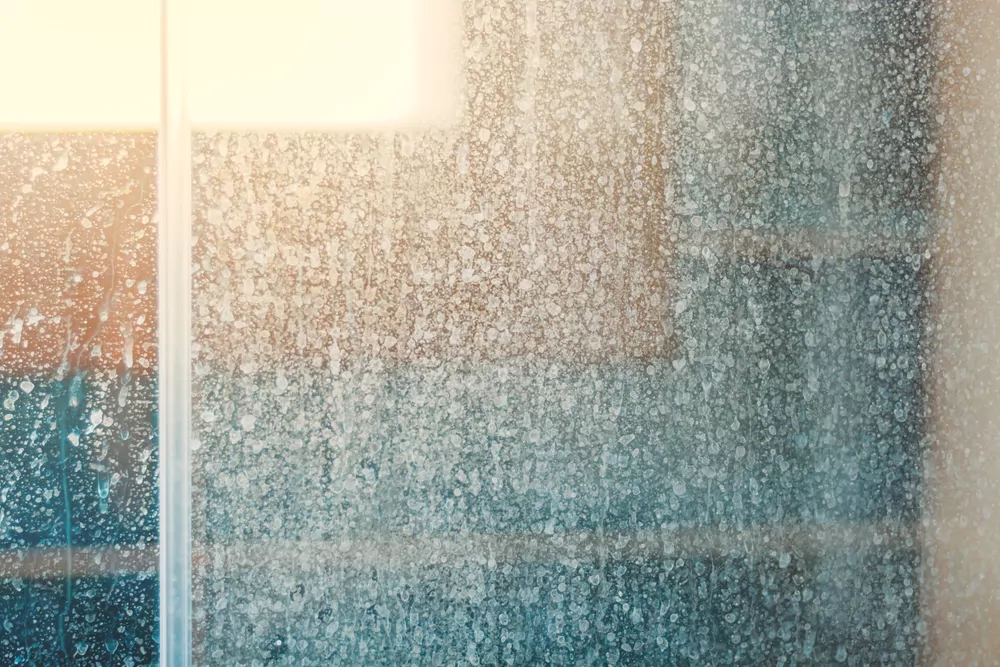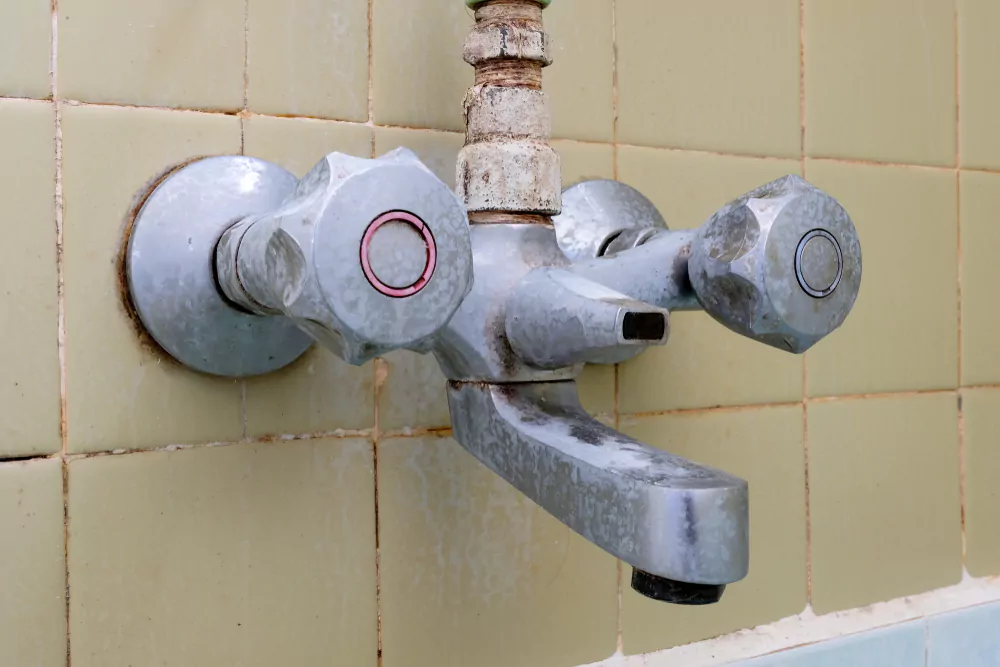Say Goodbye to Stains! Water Stain Remover Tips

Hard water stains are a common household problem that can give your surfaces, glassware, and fixtures a grimy, unclean appearance. These stubborn stains result from hard water, which is rich in minerals like calcium and magnesium. When hard water dries, it leaves behind mineral deposits, which can be challenging to remove. But worry no more! This guide will equip you with the necessary information and practical steps to become an expert in using a “water stain remover” and effectively banish those unsightly hard water stains.
1 Understanding Hard Water Stains

Hard water stains, also known as limescale, are white or greyish-chalky deposits that often form on fixtures in bathrooms, kitchens, and laundry areas. These stains can be tough to eliminate, but with the right water stain remover and techniques, you can restore your surfaces to their pristine state.
2 Choosing the Right Water Stain Remover
Several water stain removers are available on the market, each with a unique formulation designed to tackle hard water stains. When selecting a water stain remover, consider the surface you’ll be cleaning. Some removers are gentle enough for delicate surfaces, while others are more abrasive and better suited for robust materials like porcelain and ceramic.
Commercial Water Stain Removers
Commercial water stain removers are widely available and typically come in spray or gel forms. These products contain active ingredients that dissolve mineral deposits. Make sure to read the instructions and safety precautions, as some removers may require ventilation due to strong chemical fumes.
DIY Water Stain Removers
If you prefer a more natural approach, you can create a DIY water stain remover using household ingredients. One effective DIY water stain remover involves a mixture of vinegar and baking soda. The vinegar’s acidity helps break down the mineral deposits, while the baking soda adds a slightly abrasive quality to scrub away the loosened deposits.
3 Step-by-Step Guide to Removing Hard Water Stains
Now that you’ve got your water stain remover ready, it’s time to tackle those stubborn stains. Here’s a step-by-step guide:
Preparation
Start by clearing the area. Remove any objects from the surface you’ll be cleaning. If you’re using a commercial water stain remover, ensure the room is well-ventilated. If you’re cleaning a shower or tub, it’s a good idea to start with a wet surface, as this will help the water stain remover spread evenly.
Application
Apply your water stain remover generously to the stained areas. For spray products, aim for a thick, even coating. If you’re using a DIY paste, apply it with a soft cloth or sponge. Let the water stain remover sit on the stains for the prescribed time on the product label or for about 15-30 minutes for a DIY solution.
Scrubbing
After the water stain remover has had time to penetrate the stains, it’s time to scrub. Use a non-abrasive scrubbing pad or brush to gently work the remover into the stains. Be sure not to scrub too hard, as you could risk scratching the surface.
Rinse and Dry
Once you’ve thoroughly scrubbed the area, rinse off the water stain remover. For large surfaces like showers, you can use a handheld showerhead or a bucket of water. For smaller items like faucets or glassware, running them under tap water should suffice. After rinsing, dry the area thoroughly to prevent new hard water stains from forming.
4 How to remove hard water stains from glass?

Vinegar Solution
- Mix equal parts of white vinegar and water in a spray bottle.
- Spray the solution onto the glass surface affected by hard water stains.
- Let it sit for a few minutes to allow the vinegar to dissolve the minerals.
- Scrub the glass gently using a non-abrasive sponge or cloth.
- Rinse the glass with clean water and wipe it dry with a clean cloth.
Lemon Juice
- Squeeze fresh lemon juice into a bowl or spray bottle.
- Apply the lemon juice directly onto the stains.
- Let it sit for a few minutes.
- Scrub the glass gently with a non-abrasive sponge or cloth.
- Rinse the glass with clean water and wipe it dry.
Baking Soda Paste
- Mix baking soda with a small amount of water to create a paste.
- Apply the paste to the hard water stains on the glass.
- Gently scrub the glass using a non-abrasive sponge or cloth.
- Rinse the glass with clean water and wipe it dry.
Commercial Glass Cleaners
- There are many commercial glass cleaners available specifically designed to remove hard water stains.
- Follow the instructions on the product for the best results.
- Generally, spray the cleaner onto the stained areas, let it sit for a few minutes, and then wipe it clean with a cloth or sponge.
Remember to test any cleaning solution on a small, inconspicuous area of the glass first to ensure it doesn’t cause any damage or discolouration. Additionally, always use non-abrasive materials to avoid scratching the glass surface.
5 How to remove hard water stains from shower walls and bathtubs?

Hard water stains can be tough to remove, but there are several methods you can try to tackle on shower walls and bathtubs. Here’s a step-by-step guide on how to remove hard water stains:
- Gather your supplies: You will need white vinegar, baking soda, a spray bottle, a scrub brush or sponge, cloth or towel, and water.
- Make a vinegar solution: Fill a spray bottle with equal parts white vinegar and water. You can also heat the vinegar before using it for better results.
- Spray the affected areas: Generously spray the vinegar solution onto the hard water stains on the shower walls and bathtubs. Ensure that the stains are thoroughly saturated.
- Let it sit: Allow the vinegar solution to sit on the stains for at least 30 minutes. This will help break down the mineral deposits.
- Scrub the stains: Use a scrub brush or sponge to gently scrub the stained areas. Apply firm but gentle pressure to remove the stains. If the stains are stubborn, you can sprinkle some baking soda on the brush or sponge before scrubbing.
- Rinse with water: Once you have scrubbed the stains, rinse the area thoroughly with water. Make sure all the vinegar and residue are completely removed.
- Dry and inspect: Use a cloth or towel to dry the shower walls and bathtubs. Inspect the area to see if any stains remain. If there are still some stubborn stains, you may need to repeat the process or try an alternative method.
6 Tips for Preventing Hard Water Stains
Even the best water stain remover is no substitute for prevention. Here are a few tips to help keep hard water stains at bay:
- Regular Cleaning: Regularly cleaning your surfaces, fixtures, and glassware can prevent hard water stains from forming or accumulating. Each time you use an area, especially in the bathroom or kitchen, try to dry it off to reduce water residue.
- Water Softeners: These devices remove the excess minerals from your water before it reaches your taps, mitigating the formation of hard water stains. Consider installing one in your home if you live in a region with notably hard water.
- Protective Sealants: For surfaces like glass shower doors or windows, consider using a protective sealant. These products create a barrier that helps repel water, reducing the chance of hard water stains.
- Rinse Agents: If you’re dealing with hard water stains on your glassware from your dishwasher, consider using a rinse agent. These products work by making the water sheet off the dishes more efficiently, reducing spots and stains.
7 Dealing with Stubborn Stains
Sometimes, despite your best efforts, some hard water stains can prove particularly stubborn. If the basic water stain remover treatment doesn’t work, don’t despair. Here are a few tips to deal with these tough cases:
- Reapplication: Apply your water stain remover, let it sit, and scrub again. Sometimes, particularly stubborn stains may require several applications to fully remove.
- Pumice Stones: For tough stains on robust surfaces like porcelain toilets, a pumice stone can be an effective tool. Wet the stone and gently scrub the stain. Be cautious not to scrub too hard, as you could scratch the surface.
- Professional Help: If all else fails, you may want to consider hiring a professional cleaning service. They have access to industrial-strength water stain removers and the expertise to handle stubborn stains.
8 Wrapping Up
Hard water stains can be a nuisance, but with the right water stain remover and techniques, they’re no match for a determined homeowner. Whether you choose a commercial product or a DIY solution, the key is to apply it correctly, give it time to work and scrub gently but thoroughly. And remember, the best way to deal with hard water stains is to prevent them from forming in the first place.
By understanding how to effectively use a water stain remover, you can keep your surfaces gleaming and extend their lifespan, ultimately making your home a more comfortable, attractive place to live. So, roll up your sleeves, grab your chosen water stain remover, and say goodbye to those unsightly hard water stains.
Community Q&A
About This Article
This article has been viewed 530 times.



